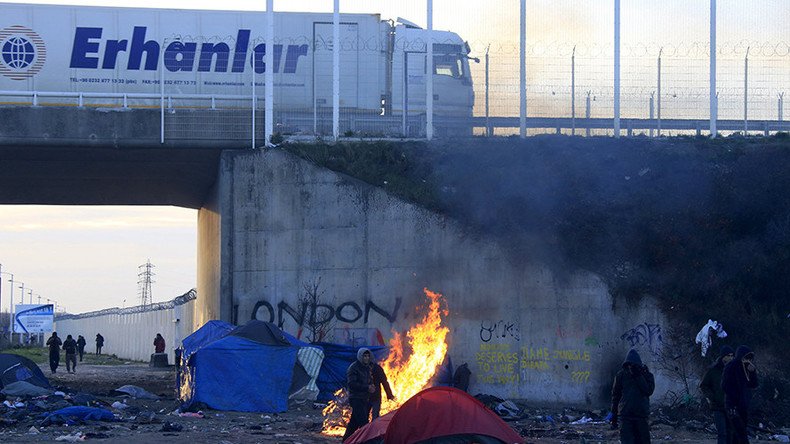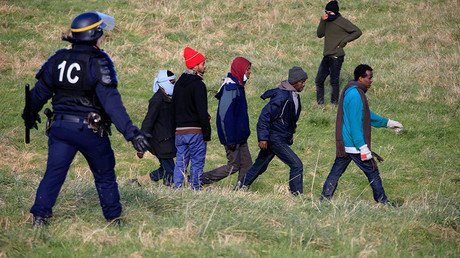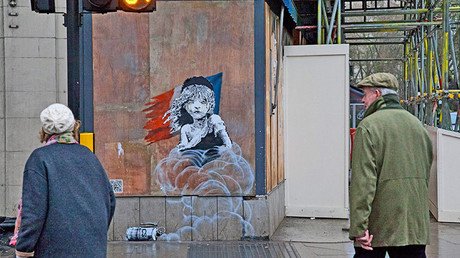‘We are calling on the French government to deploy the military in Calais’

There is a humanitarian issue here for truck drivers traveling through the port of Calais, and we simply cannot have drivers being attacked by migrants on a daily basis, Richard Burnett, chief executive the UK’s Road Haulage Association, told RT.
As tension flares over the migrant crisis in the EU, residents of the French city of Calais are demanding that their homes be protected from refugees. Residents gathered to call attention to the impact Europe's migrant crisis is having on their town. On Saturday a group of migrants stormed a UK-bound ferry, with tear gas and water cannon were used to disperse the crowd.
RT: What can be done to avoid similar incidents in the future?
Richard Burnett: We’ve been demanding the French authorities to actually deploy the military. For some time now this problem has being raging since the crisis back in the summer. We have not seen an improvement in the situation. Literally, on a daily basis, a weekly basis we have seen drivers being attacked coming through the port of Calais. I think it is very clear now after Saturday that there just simply aren’t enough gendarmes to contain and control the situation. And we are calling for the French government to deploy the military in order to put law and order back into Calais.
RT: Is it just a French problem?
RB: No, absolutely. I think there is recognition from the British government... they are helping in terms of raising the profile and liaising with the French government. This is a French issue, it is on French soil, and we have no direct jurisdiction over it. But we need to work with the authorities to ensure that the right measures are put in place. We are simply asking for the right resources to protect drivers that are coming through the port of Calais. And there is a humanitarian issue here for the drivers that are being attacked on a daily basis.
We understand the plight of the migrants. There are refugees and we understand that those refugees need to have secure homes. But there are also economic migrants there that also need to be processed and taken back to the country from which they came. So, there needs to be some balance in this argument. But we simply cannot have drivers being attacked on a daily basis.
RT: You warned that a trucker could be killed. Just how dangerous is Calais for drivers?
RB: Clearly what we are doing at the moment we are trying to raise a profile, we are lobbying government, we are talking to the government in order to put focus and pressure back on the French government to put the right controls in place. If a driver is attacked, we are recommending: ‘do not engage, do not get out of your vehicle’. But when you are having things like shopping trolleys, bricks, blocks thrown from motorway bridges - that’s a major risk. And therefore we need to make sure we have got the right resources and support in place to stop that from happening in the first place.
RT: In Amsterdam EU interior ministers are meeting to discuss whether or not they should suspend a Schengen open border zone for two years. Will it make any difference?
RB: I think if the borders are controlled better than they are at the moment, there may well be an easing the situation. I think in the short term, we need protection; in the long term, there needs to be a European and global solution in order to tackle the issues first hand to stop the flow in the first place. But we certainly need to put measures in place to ensure that people aren’t being able to just transit Europe.
The statements, views and opinions expressed in this column are solely those of the author and do not necessarily represent those of RT.














